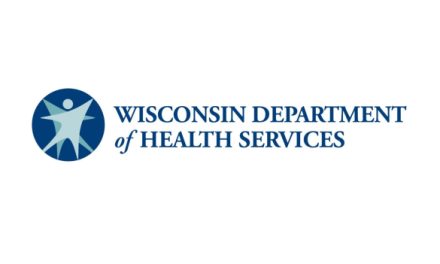
State agencies share new report with important guidance for first responders to avoid exposure to fentanyl and other synthetic opioids
The Wisconsin Department of Health Services (DHS) and the state Department of Justice (DOJ) are urging police, firefighters, EMTs, and other first responders to heed the directions highlighted in a new report published by the Interagency Board for Equipment Standardization and Interoperability to avoid exposure to Fentanyl and Fentanyl analogues.
The Interagency Board for Equipment Standardization and Interoperability report(link is external) (PDF) offers comprehensive guidelines on the selection and use of personal protective equipment and decontamination procedures for first responders to protect against synthetic opioids.
Fentanyl and other synthetic opioids are considered especially hazardous to first responders because they can be absorbed through the mucus membranes (mouth or eyes), allowing the drug to get into a person’s system and cause overdose. The drugs may also be inadvertently inhaled if particles become airborne, putting first responders, and others, at risk.
This guidance offers the most comprehensive resource currently available.
“Keeping our law enforcement officers and first responders safe is a top priority at the Wisconsin Department of Justice,” said Attorney General Brad Schimel. “We are committed to providing the best training and issuing relevant best practices and protocols that reflect trends so public safety professionals are prepared to safely handle whatever challenges come their way.”
Fentanyl and other synthetic opioids are becoming increasingly common in Wisconsin. According to the Department of Justice, 33 grams of a powder that tested positive for fentanyl were seized in Milwaukee. In 2016, there were 275 overdoses in Wisconsin connected to synthetic opioids.
“The state’s opioid epidemic isn’t limited to heroin or prescription pills, but also illicitly manufactured opioids,” said State Health Officer Karen McKeown. “It is vitally important that we remain vigilant in our efforts toward ending the misuse of these drugs, and protect our communities from them, including first responders.”
The Interagency Board for Equipment Standardization and Interoperability is a voluntary collaborative panel of emergency preparedness and response practitioners from a wide array of professional disciplines that represents all levels of government and the public safety sector. Based on direct field experience, Interagency Board for Equipment Standardization and Interoperability members advocate for and assist in the development and implementation of performance criteria, standards, and test protocols, and technical, operating, and training requirements for all-hazards incident response equipment with a special emphasis on Chemical, Biological, Radiological, Nuclear, and Explosive issues.
Governor Scott Walker created The Governor’s Task Force on Opioid Abuse(link is external), co-chaired by Lt. Gov. Kleefisch and Rep. Nygren, to build a unified effort to end opioid abuse and overdoses in the state, and ensure Wisconsin is on the forefront of the opioid epidemic. Governor Walker also directed the Department of Health Services to issue a Public Health Advisory to increase awareness and efforts in addressing the opioid epidemic, and earlier this year called for a special session of the Legislature to consider recommendations presented by the Governor’s Task Force on Opioid Abuse.





